The internet is both a wonderful place and a strange place.
While the web has completely changed the way people create and communicate, those benefits come with a price, a price otherwise known as memes. Most people have a basic idea of what a meme is, but for those who may not know, an internet meme is a trend, gag, quote or piece of media that is shared, often as a joke, and spread through the net, mainly on social media sites such as Facebook to Reddit.
Memes are very much integral to the culture of the internet, and have graduated from their original, internet-exclusive state, and moved to the mainstream, as evidenced by the recent debates concerning the comic-character-turned meme, Pepe the Frog, and how his depiction as a white supremacist and anti-Semite affected the results of the 2016 U.S. election. Whether you find the whole debate on cartoon frogs and the alt-right serious or flippant, what’s inarguable is that memes are influential, and that they’re here to stay.

On the other end of the internet spectrum, formerly far away from meme-production, is the business end of the web. In the past decade, the net has proven itself a fantastic place for businesses to sell and promote their products.
Before, companies could only advertise through print advertisements and TV commercials, and while both are effective in their own rights and still used today, they lack the effectiveness of internet-based marketing; instead of hoping your client sees your billboard, watches television during a certain hour or reads a monthly magazine, they can now simply place an ad tailored to reach you based on your web history.
And while internet advertising has changed the game, social media marketing has reinvented the entire concept. Sites such as Twitter, Facebook and Instagram have billions of active users, and businesses have taken notice. Through intelligent campaigns, corporations have been able to use social media to reach potential clients on a more intimate level than ever before. As a result, these forays into internet promotion have paid off handsomely for many brands, two examples of which are the shockwaves sent by the Rainbow Oreo and the record-breaking popularity of the “This is Us” trailer on Facebook.
As a result of the popularity of social media and the desire of companies to push product, the two disparate ends of the internet spectrum—meme-making and marketing—have found themselves at an intersection. In the past few years, both advertisers and consumers have taken the wacky, bizarre culture of memes and utilized them to both sell products and critique product campaigns. When it comes to using memes to market to consumers, while there are plenty of examples, no bigger two come to mind than the Twitter accounts of Sonic the Hedgehog and Wendy’s.
While Sonic predated the modern internet and has been in the meme scene since its incipiency, the brand was not always on the right side of the jokes. Several of the series’ more notoriously bad games, such as “Sonic ’06” and “Sonic Boom,” inspired critics to pen satirically amateurish drawings of the famous hedgehog. The sketches ribbed the franchise’s “radical,” “too cool for school” tone, which had been a staple of the series, and, given the popularity of the franchise amongst gamers, the memes soon became popular across the internet.

Then, in 2015, in a brilliant PR move, the new social media manager for “Sonic” used the memes meant to criticize the franchise to mock the brand. The endearing move of self-effacement proved that the company could take a joke, an admirable trait across all platforms, and also that they were listening to their fan base.
Within a year and a half, the social media pages for the famous hedgehog have continued to poke fun at themselves, as well as use the Sonic characters to reference unrelated memes, such as “Arthur’s Fist” and “Roll Safe.” Moreover, the brand has used the player-created memes to interact with the gaming community at large, including other franchises, journalists, developers and famous gamers like the Game Grumps.
While I should make it clear that I have no idea whether or not the strategy improved sales, it has certainly improved brand visibility and reputation. The eccentric promotional scheme has found a way to both mock and celebrate everything great about “Sonic,” and gaming as a whole, which is just the sort of meta self-irony that the internet has always loved.
While Sonic may have polished its reputation in the past few years, Wendy’s unearthed theirs. Formerly little more than a third-tier hamburger chain betting it all on their uninspiring “Fresh Never Frozen” slogan, in 2017, due to some deft viral marketing, Wendy’s has taken the internet’s reins.
In January, a smart-aleck exchange on Twitter snowballed into internet fame, as users begged the restaurant’s Twitter account to roast them and the avatar obliged. Soon, nearly anyone who tweeted to the company’s account could expect a fun burn in return, which helped their social media following balloon; the account garnered even more attention after roasting McDonald’s claim of serving “fresh beef” in their hamburger patties.
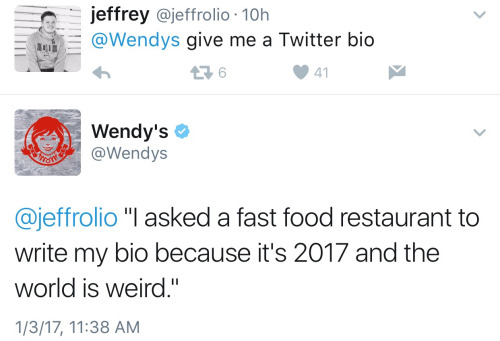
Though their burn-request shtick put the account on the map, it was the #NuggsforCarter campaign that really pushed Wendy’s from Twitter account to meme status. When one Twitter user asked the account how many retweets he needed to get free chicken nuggets for life, the avatar famously responded “18 million,” an impossible number. Lo and behold, as the exchange grew in notoriety, the seemingly impossible task started gaining traction.
As the retweets rose, the original tweet continued to gain momentum and visibility, so much so that it has now become the most retweeted tweet of all time, surpassing Ellen DeGeneres’ famous “Oscar selfie” tweet. Though the young man has yet to reach 18 million retweets, the company reached out anyway with a promise of free nuggets for life, a small price to pay for one of the greatest viral Twitter campaigns in history.
It should again be noted that I have no idea whether this positively affected sales, but it has skyrocketed the brand’s likability. Hell, I might even buy Wendy’s just to show appreciation for their fun approach to social media.
Still, as with all things, such media manipulation has its downsides. For every brand that has accurately gauged the reactions of keyboard commandos and created appropriate campaigns, a hundred brands have failed to do in spectacular fashion. Just last month, Pepsi created an ad that indelicately depicted police brutality as an issue so simple that it could be solved with the gifting of a Pepsi from a gorgeous Kardashian.
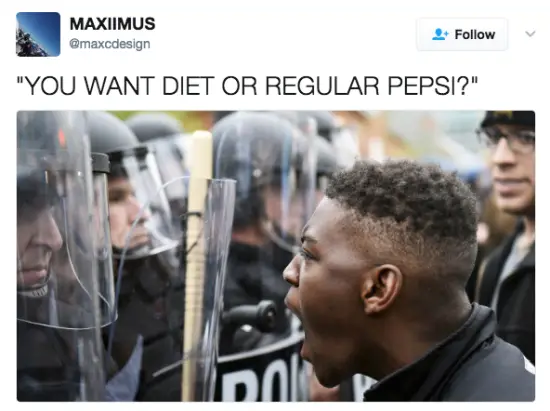
Because the internet felt that the ad was grossly trying to make a buck off of social justice sentiments, it attacked the ad through memes, to the point where even Bernice King, the daughter of Martin Luther King Jr., responded with a meme of her own.
So while memes may represent the next frontier in digital marketing, they are certainly a fickle mistress. What the next few years will offer is up for debate (though I personally am a fan of the Denny’s Twitter), but the good news is that the consumer has more power than ever to accept, engage with and criticize attempts to market to them. So the next time you see a company promote its product with a SpongeGar sequence or a picture of Arthur’s fist, just remember that it’s a beautiful time to be alive.


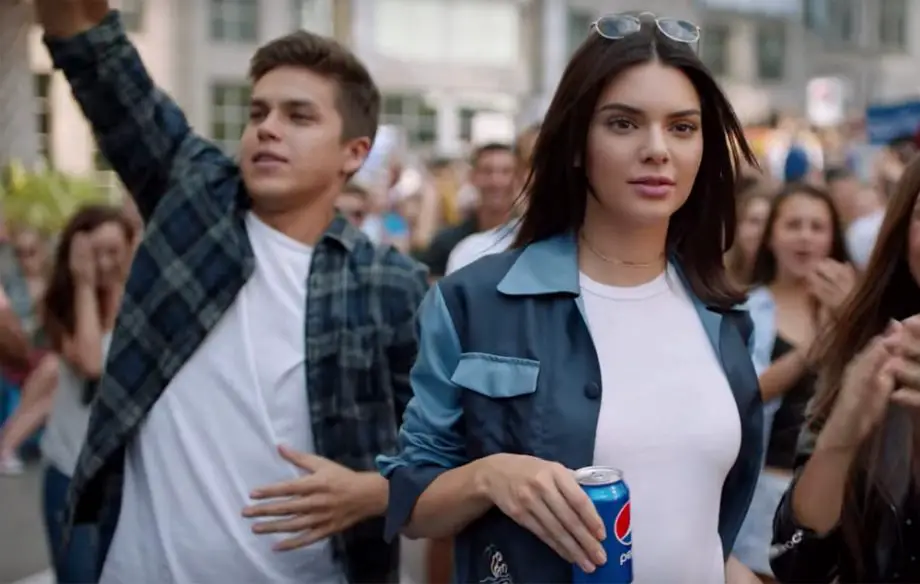


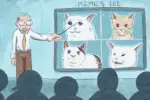


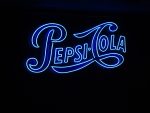









[…] be clearly included in a standard liberal arts undergraduate degree — skills like social media marketing, personal branding and the managerial aspects of small-business […]